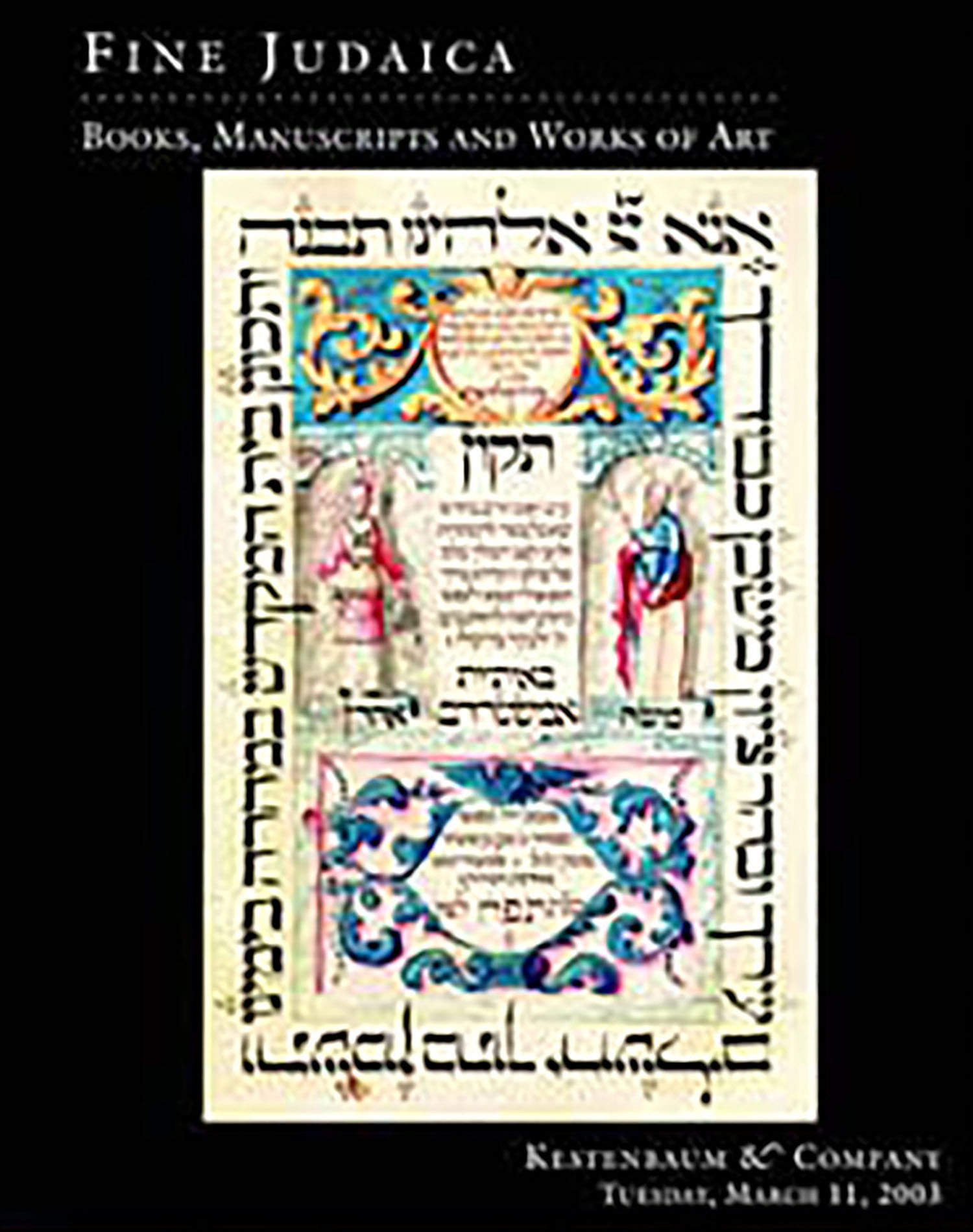The Inquisition and Judaism. A Sermon addressed to Jewish Martyrs, on the occation of an Auto-da-Fe at Lisbon, 1705. By the Archbishop of Cranganor. Also a Reply to the Sermon, by Carlos Vero. Translated by Moses Mocatta

AUCTION 19 |
Tuesday, March 11th,
2003 at 1:00
Fine Judaica: Printed Books, Manuscripts and Works of Graphic Art
Lot 109
(INQUISITION)
The Inquisition and Judaism. A Sermon addressed to Jewish Martyrs, on the occation of an Auto-da-Fe at Lisbon, 1705. By the Archbishop of Cranganor. Also a Reply to the Sermon, by Carlos Vero. Translated by Moses Mocatta
London: J. Wertheimer & Co 1845
Est: $500 - $700
PRICE REALIZED $650
The vicious sermon delivered by Dom Diego da Annunciacoa Justiniano, the titular Archbishop of Cranganor, India, before sixty-six miserable victims of an auto-da-fé held in Lisbon in 1705, was a brutal tirade in which the Archbishop attempted to prove from Jewish sources the truth of Christianity. Upon publication, David Nieto, the celebrated Haham of London, was moved to provide a ftting response. Penned under the nom-de-plume Carlos Vero (“Charles Truth”), Nieto’s brilliant response is one of cool, clear-headed theological scholarship. Nieto’s enterprise was necessitated by the relentless pressure exerted by the Inquisition upon the Marranos of Portugal, which was a painful and ongoing problem of 18th century Jewish life. Moses Mocatta produced the first English translation of the notorious sermon and Haham Nieto’s celebrated refutation in 1845. It was published by Isaac Leeser in Philadelphia in 1860.
See H.P. Salomon, New Light on the Portuguese Inquisition: The Second Reply to the Archbishop of Cranganor, in: Studia Rosenthaliana, Vol. V No.2 (1971) pp.178-86.
Sir Isaac Lyon Goldsmid, was an English financier and the first Jewish baronet. His connection with the Mocatta family began when he became a partner in the firm of Mocatta & Goldsmid, bullion-brokers to the Bank of England and to the East India Company. His most extensive financial operations were connected with Portugal, Brazil, and Turkey. For his services in settling an intricate monetary dispute between Portugal and Brazil he was, in 1846, created Baron de Palmeira by the Portuguese government. (See JE)
